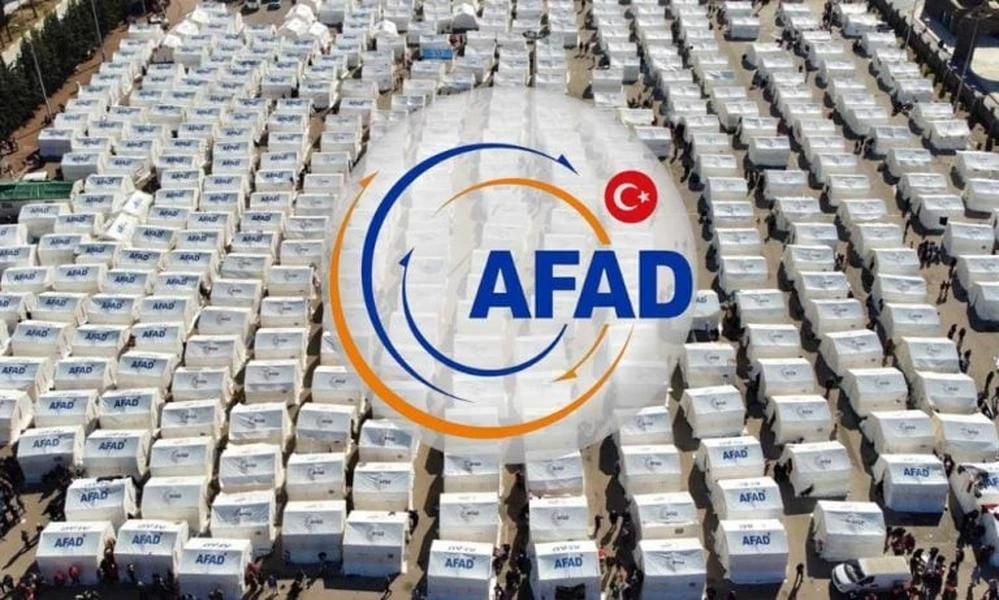Property for Rent
Cars for Sale
Used Furniture
Motorcycles
Machines and Tools
Professions and Services
Job Listings
















Presidency of Disaster and Emergency Management "AFAD", its duties and establishment history
AFAD stands for the "Disaster and Emergency Management Authority" in Turkey. It was established in 2009 as a governmental body under the Turkish Prime Ministry, aiming to coordinate all activities related to disasters and emergencies in the country.
The importance of AFAD lies in its role as the primary entity responsible for planning and responding to natural and human-made disasters, such as earthquakes, floods, landslides, industrial disasters, and more. AFAD works on developing strategies to prevent these disasters and mitigate their impacts, as well as organizing relief, assistance, and rehabilitation efforts post-disaster.
AFAD's activities also include training and public awareness on how to act in emergencies and coordinating efforts among government agencies, non-governmental organizations, and volunteers to ensure an effective and swift response to disasters. Additionally, AFAD plays a vital role in developing and updating infrastructure to face potential risks, including constructing earthquake-resistant facilities and improving early warning systems.
Beyond its efforts within Turkey, AFAD also participates in international relief operations, providing support and assistance to other countries affected by disasters. This reflects Turkey's commitment to international cooperation and humanitarian assistance.
AFAD is considered an important model for disaster management, continually seeking to improve its methods and tools to address the increasing challenges posed by climate change and rapid urban growth.
The headquarters of the Disaster and Emergency Management Authority (AFAD) is located in the Turkish capital, Ankara. This headquarters serves as the central hub for operational management and coordination among the various branches and relevant authorities in the country.
5. Levent, Hasdal, 15 Temmuz Şehitler Cd No:1, 34060 Eyüpsultan/İstanbul

Administrative System of the Disaster and Emergency Management Authority
Organizational Structure : AFAD has a centralized organizational structure that includes a main headquarters located in Ankara and extends to regional branches in various Turkish provinces. This structure consists of several specialized departments dealing with different aspects of disaster management, such as planning and training, emergency response, risk assessment, and infrastructure.
Coordination Between Agencies : AFAD serves as a coordination center among various ministries and governmental agencies and collaborates with municipalities, non-governmental organizations, and the private sector. It sets strategies and policies for disaster management and coordinates joint efforts among the concerned parties.
Training and Qualification : AFAD runs training programs aimed at qualifying individuals working in the field of disasters and emergencies, in addition to providing awareness and education to communities on how to respond to disasters.
Rapid Response : AFAD has rapid response teams equipped with the necessary tools and skills to deal with disasters immediately upon occurrence. It manages search and rescue operations, provides urgent relief, and rehabilitates affected individuals. AFAD combines expertise and modern technologies to enhance the efficiency of disaster responses and reduce their impact on communities.
Main Tasks of the Disaster and Emergency Management Authority
Earthquake Response : AFAD has effectively responded to several major earthquakes in Turkey, including the 2011 Van earthquake and the 2020 Izmir earthquake. These efforts included professional rescue teams and humanitarian aid for those affected.
Refugee Management : AFAD played a significant role in managing the needs of millions of Syrian refugees in Turkey by establishing camps and providing humanitarian support, including food, shelter, education, and healthcare.
Immediate Flood Response : AFAD conducted rapid and effective relief operations during floods that hit certain regions of Turkey, providing temporary shelters and urgent assistance to those affected.
Development of Early Warning Systems : AFAD contributed to enhancing early warning systems for earthquakes and other natural disasters, which helps in reducing human and material losses.
Training and Awareness : AFAD regularly organizes training courses and workshops to increase awareness among individuals and communities about the importance of disaster preparedness and how to act when they occur.
International Participation : AFAD participated in international relief efforts, offering support in major disasters like the 2015 Nepal earthquake, reflecting Turkey's commitment to global humanitarian assistance.
These achievements are part of AFAD's efforts to enhance disaster response capabilities in Turkey and improve coordination among involved parties to minimize the impact of disasters on society.









